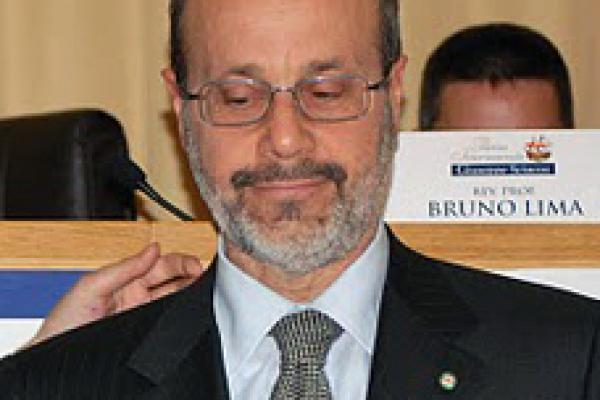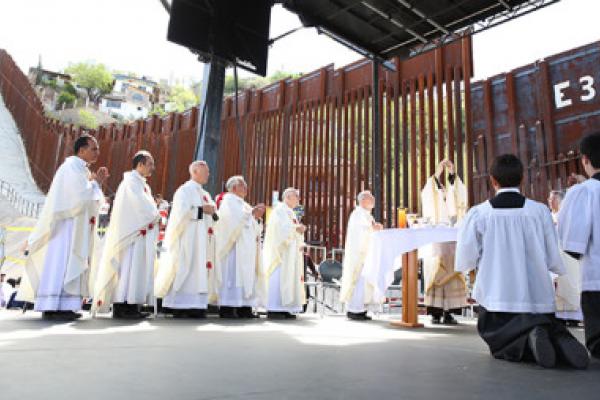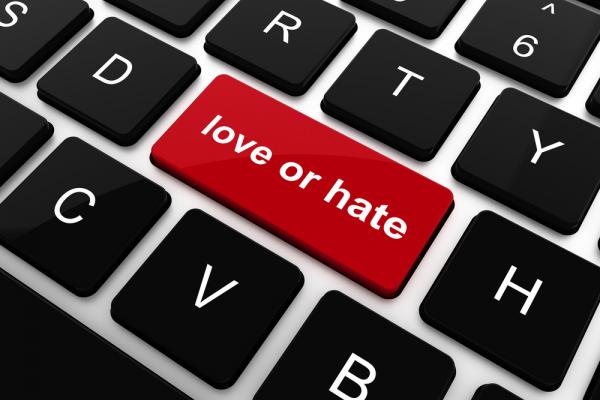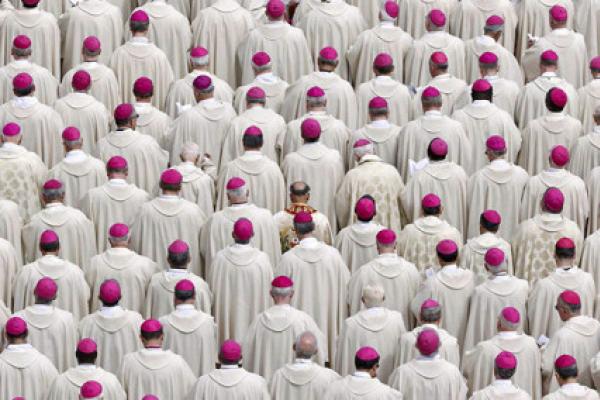Rabbi Moti Rieber travels the politically red state of Kansas armed with the book of Genesis, a psalm and even the words of Jesus to lecture church audiences, or sermonize if they’ll let him, about the threat of global warming.
“My feeling is that I’m the only person these people are ever going to see who’s going to look them in the eye and say, ‘There’s such a thing as climate change,’” Rieber said. “I’m trying to let them know it’s not irreligious to believe in climate change.”
He is at the vanguard of religious efforts — halting in some places, gathering speed elsewhere — to move the ecological discussion from its hot-button political and scientific moorings to one based on theological morality and the right thing to do.
The Church of England’s vote to allow female bishops threatens unity with the Catholic Church, according to the editor of the Vatican newspaper, L’Osservatore Romano.
Giovanni Maria Vian, who is also a Rome historian, on Tuesday said the decision would have “an extremely negative impact” on steps to bring the churches closer together despite a positive meeting between Archbishop of Canterbury Justin Welby and Pope Francis a month ago.
“Clearly it’s a decision that complicates the ecumenical path,” Vian said in an interview with the Italian newspaper La Stampa published on Tuesday. “The problem is not only with Rome but also with Orthodox Churches, and that the Anglican Church is itself divided on the issue.”
After nearly 20 years of debate, the Church of England’s General Synod voted Monday to permit women priests to be ordained as bishops, overturning centuries of tradition in a church that has been deeply divided over the issue.
Pope Francis on Tuesday waded into the controversy of the wave of unaccompanied minors arriving at the U.S.-Mexico border, calling for an end to racism against migrants and pushing the U.S. to offer greater protection for young children entering the country illegally.
“Many of their rights are violated, they are obliged to separate from their families and, unfortunately, continue to be the subject of racist and xenophobic attitudes.”
The Argentine pontiff said a different approach is needed to tackling what he called a “humanitarian emergency” as growing numbers of unaccompanied children are migrating to the U.S. from Central America and Mexico.
If Christians stopped bickering about church, presenting sex as a first-order concern, telling other people how to lead their lives, and lending our name to minor-league politicians, what would we have to say?
We need to figure that out, because we are wearing out our welcome as tax-avoiding, sex-obsessed moral scolds and amateur politicians.
In fact, I think we are getting tired of ourselves. Who wants to devote life and loyalty to a religion that debates trifles and bullies the outsider?
So what would we say and do? No one thing, of course, because we are an extraordinarily diverse assembly of believers. But I think there are a few common words we would say.
The history of religious wars in human civilization is a tragic commentary on those who adhere to religious traditions. From the French Wars to the Crusades, much blood has been shed in the name of the Holy. The dissonance between movements to perpetuate Goodness and the actions which deliver Evil is proof of how much the religious communities often miss the mark. Where violence reigns, religious people are acting out of ideology, rather than following a God of benevolence.
There is a variant form of religion war taking place online. Seth Godin, a popular blogger, remarks on today’s marketing in the digital age as hailing back to the ancient ways humans organized themselves: tribes. He rightly notes the easy accessibility these days for ordinary citizens to congregate around shared values. His book, Tribes, inspires leaders to harness the power of tribes to affect great change. Yet it is precisely because we tie our identities so closely to our online tribes that when tribal conflicts break out on the internet, we are armed and ready to fight.
Three leading Anglicans have entered an explosive debate about whether it is permissible for Christians to allow doctors in England and Wales to administer lethal doses of drugs to terminally ill patients given less than six months to live.
More than 100 members of the House of Lords, England’s upper house of Parliament, have asked to speak on the second reading of the Assisted Dying Bill on Friday.
The bill will be opposed by Archbishop of Canterbury Justin Welby, who is expected to reaffirm the Church of England’s traditional hostility to any move that would endanger the Christian principle of the sanctity of human life.
Pope Francis has provoked a debate within the Catholic Church after being quoted as saying that one in 50 Catholic clerics is a pedophile.
In the latest example of his get-tough stance against sex abuse — and his signature style of frank answers to tough questions — the pope told the Italian daily La Repubblica that the sexual abuse of children was like “leprosy” in the church and he pledged to “confront it with the severity it requires.”
But the exclusive interview with 90-year-old veteran journalist Eugenio Scalfari published Sunday drew an immediate reaction from the Vatican that disputed the accuracy of the pontiff’s quotes.
After 20 years of turmoil and angry debate, on Monday the General Synod of the Church of England said “yes” to women bishops.
The first could be named by the end of the year with the appointment of at least three additional women sometime in 2015, say senior church officials.
The General Synod is the three-tier governing body of the Church of England and it is made up of bishops, clergy, and laity.
At a meeting in York, the General Synod gave final approval to legislation introducing the changes by the required two-thirds majority.
Overall 351 members of the 433 Synod voted in favor of the measure.
“If, as Christians, we believe that peace is rooted in Christ, then how we build that peace within us, in one way, is through the disciplines of solitude and silence; through spending time with God. Solitude is not necessarily extremely easy process, because it will bring to the fore all sorts of things that are within us. We will get to know ourselves in a fuller way. In solitude, where you know that God is with you, you can just be with God, and there is no need for a mask. Also, your humility might grow because you will see yourself as you really are — in a way that needs to be healed and transformed.”
The interesting thing about human nature is that even among the oppressed, people will seek supremacy, a pecking order. We human beings have great capacity for tenderness and compassion, and we’re also the meanest things in the world! And even when we are oppressed together, we will try to find some advantage or superiority over others.
“As for you, my flock, saith the Lord, I shall judge between sheep and sheep, between rams and goats. Is it not enough for you to feed on the good pasture, but you must tread down with your feet the rest of your pasture?”
In other words: Do you have to get what’s yours and at the same time mess it up for others?









